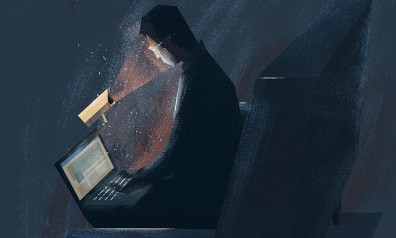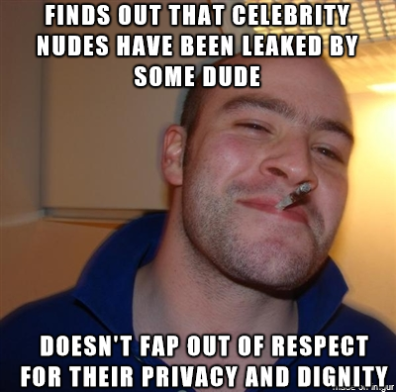Privacy and gender can be connected by using the way our norms // stereotypes affect our social self. While in the safety and security of the private sphere, we are able to express ourselves in a way which correlates to how we feel and act inside. Consequently when this protective coating is peeled away and exposes us to an outer world, we lust to fit to societies standards, changing our actions to suit this norm. As privacy soon disintegrates and we are rarely ever able to be our actual selves, conformity takes control and personal freedom is lost.
Connecting to Social Psychology, there are two fundamental axioms ::
- People create their own reality; meaning that each individual has a different interpretation of the world in which we live. Even though these views may misrepresent the actual truth, they are subjective, not objective.
- The power of the situation has more influence on how you act than you ultimately do. (Ponder for a moment this scenario, if you were to fall down a staircase, how would you react by yourself, with a friend, or in a part of a play; now how about a crush you’ve been eyeing?)
So when we strut around in the world our actions will be relational to what we feel those observing us find acceptable. For women this may mean having to act womanly, kind, “pretty” instead of how they actually feel inside. Men must take on a masculine approach, being strong, brave, or the forefront of a conversation. Though we have taken strides to alter our perception of right and wrong, there are still issues of correcting negative behavior to address.
(start 6:00 in)
_________________________
As our lives become more complex with the various accounts, devices, and drones; the chance for someone peeking through, becomes an issue. With various areas to give away personal information to the internet such as Google and Facebook, our private lives are becoming less private. For those who enjoy keeping their opinions and interests to themselves this is a growing problem which can affect other areas of our lives as well.
Being something not directly related to criminal justice, going further as to gain access to a potential criminals history and activity may bring possible evidence to light for a conviction. One such image // story which took a stroll around some Facebook accounts depicted an NFC chip (<– link) in new phones. Though some people did believe this piece of hardware was able to track their person and report it back to some government agency. However silly this is, processes with the same outcomes don’t need some hardware, when being discreet is the name of the game. Instead a series of code is embedded (similar to government sanctioned back doors) to collect their sought after information; thus preventing any ability to hide details about yourself from public eye. Personally and emotionally, it becomes drastic. Those private moments, photos and conversations which took place when no one was watching, well now people are and if people find them… judgement ensues.
In 2014 a mass of private photos stored on iCloud were hacked and released to public eyes, disclosing many celebrities secret pictures. A popular name ,The Fappening, was a designated headline which displayed how gender-centric around men this event was. Since only women’s pictures were the main news story, we are shown how much more we objectify women than men. As actress Lena Dunham stated on twitter following the event, “viewing these pictures violates these women over and over again”.
Though I personally don’t feel threatened about how our internet history is tracked, or our likes are recorded because in the end, you are you, why is this something that needs hiding? However when our entire private selves are purged onto the internet for the public eye, a line has been crossed.
Questions:
Why do we need privacy?
How much do you value your privacy? Internet life vs. reality life?
What are the consequences if every move you make over the internet was recorded and posted online?
Do gender stereotypes continue even when in a private setting? And how much of difference would people act if there was no sense of privacy?
http://www.theguardian.com/world/2014/aug/03/internet-death-privacy-google-facebook-alex-preston

